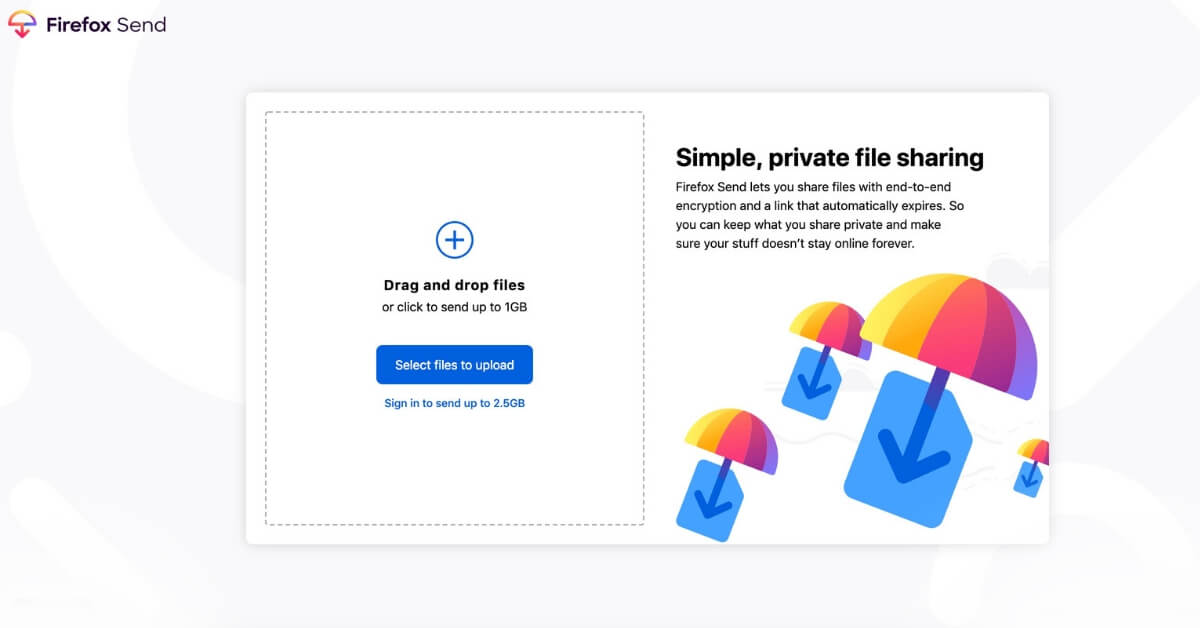Mozilla has finally launched Firefox Send, a free encrypted file-transfer service. Prior to the official launch, this product was introduced back in 2017 as a ‘Test Pilot’ experiment. Through this service, users can share up to 2.5GB through their browsers with end-to-end encryption.
Users can send files up to 2.5 GB only if they have a free Firefox account. Otherwise, they can send data only up to 1 GB. Back in the days when Mozilla tested this feature, the file sharing was limited to 1 GB too.
Unlike Dropbox and Google Drive, you don’t have to store, edit or share the data for collaboration with others. With Firefox Send, you just share data from one end to the other.
If you want to quickly share a single file, Firefox Send will be an amazing option.
For using this service, you need to visit the Firefox Send website and upload the files you want to share. Once you upload, set an expiration limit on the files and share them. This option of setting an expiration limit was inspired by Snapchat. Also, you can protect the files with a password before you send.
While sending requires a Firefox account, the receiver need not have one. When you send files, Firefox gives you a link which you can directly send to the person with whom you are sharing the data.
Firefox says that this new file sharing service can be used for moving sensitive files and information around the web easily. As they offer end-to-end encryption, the data is safe and secure. Firefox describes Send to be “Private By Design.”
Despite all the claims by Firefox, security experts still ask us to be careful about sharing sensitive and private data through online services.
Mozilla Firefox was a very popular browser and held a huge share of the browser market in the past. However, in recent times, the user base of Firefox steadily declined, owing to browsers like IE, Chrome and Safari.
If you're tired of censorship and dystopian threats against civil liberties, subscribe to Reclaim The Net.









